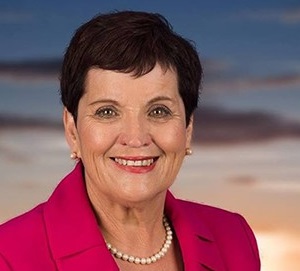A decision by the NSW pricing regulator to set the rate cap at 3.7 per cent has dealt a body blow to struggling councils, the state’s peak body for local government says.

IPART announced on Wednesday it had set the rate cap for 2023/24 at a baseline of 3.7 per cent, but says population growth allowances mean some councils will be pegged up to 6.8 per cent.
“Higher inflation means that councils are facing increased costs in delivering services to the communities they serve,” IPART Chair Carmel Donnelly said.
“We have taken these increased costs into consideration while also trying to limit the level of rate increases that ratepayers are facing.”
But LGNSW says the inflation rate is currently sitting at 6.1 per cent and is expected to rise over the coming months.
“A 3.7 per cent rate cap in these current economic conditions will mean many councils will continue reducing services, delaying essential upgrades to infrastructure and even reducing staffing levels,” Cr Turley said.
“This is another body blow for the local government sector that was still reeling from IPART’s decision to set the lowest baseline rate cap in 20 years, when it announced a 0.7 per cent increase for the current financial year.”
Review underway
IPART noted that it had announced a review of the rate cap methodology in August.
Cr Turley says Wednesday’s announcement highlights how badly a review is needed and that it can’t come soon enough.
Cr Turley says the current rate cap methodology is formulated using two year old data, which means the cap for 2023/24 is based on the change in the average costs incurred by a typical council between 2020/21 and 2021/22 – when most councils were making Covid-related cutbacks.
“This two-year lag means that the rate cap does not reflect the real cost movements faced by councils in the year to which it applies,” Cr Turley said.
She says the rate cap not only falls short of real cost increases facing councils in 2023/24, but it will also fall short of anticipated local government award wage increases.
Call for submissions
IPART is calling for public submissions to its rate peg review Issues Paper until 4 November 2022.
“We will be looking at new approaches to setting the rate peg that reflect, as far as possible, changes in inflation and local government costs, while continuing to protect ratepayers from excessive rate increases,” Ms Donnelly said.
A draft report will be released in February 2023 setting out IPART’s draft findings and recommendations.
IPART will take further submissions on the draft report and hold a public hearing early next year, most likely in March 2023.





The international national and state policy impositions on the sectors operating costs is unfortunate. Relief needs to come from those bodies before a new slug on ratepayers